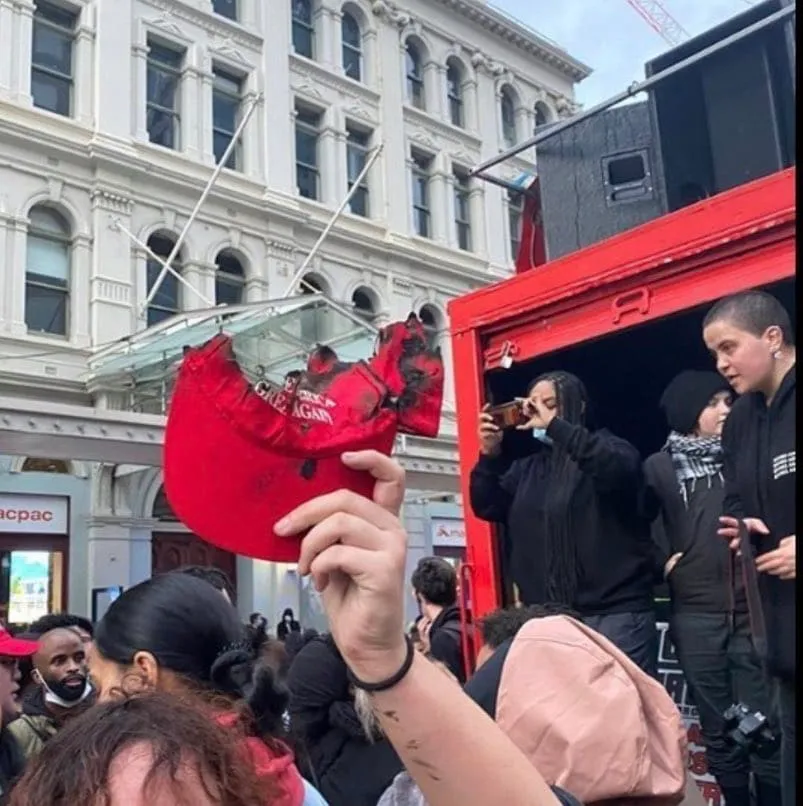Table of Contents
Rachel Poulain
Spokesperson
Free Speech Coalition
The last few weeks have demonstrated that 2020 has no intention of slowing down. It has been just over two weeks since the death of George Floyd and already the tidal-wave of reactions seem to have washed away any thought COVID-19. For all the talk of a ‘new normal’ post-lockdown, the headlines are looking awfully familiar already.
At a Black Lives Matter protest in Auckland, a teacher wearing a Make America Great Again hat was confronted by attendees of the protest, and his hat was stolen and burnt. After posting a video of the incident to his Facebook, complaints were made to the primary school where he worked. We can only hope that the school’s process for handling these complaints are fair, but it is concerning that simply exercising the right to make a “controversial” political statement may jeopardise your employment.
We witnessed another free speech flashpoint when news broke of a group of students at Marist College in Auckland who had clashed with senior management over posters put up around their school supporting the Black Lives Matter movement. It has been announced that there will be an investigation into the incident by the school. The debate within the Free Speech Coalition on this matter has been lively. Issues such as the value of encouraging high school students to practice exercising their rights versus the role of a school to exercise discipline in order to maintain an effective teaching environment were raised. Rachel Poulain, Free Speech Coalition member spoke on the AM Show to discuss the issue. You can watch the full interview here.
What both of these issues reveal is the unbelievable speed and reach that incidents perceived as relating to free speech have in the media. The limits and nature of the right to free speech is one of the most hot-button political topics right now.
However, you may have missed a less sensational headline a few weeks ago, regarding a bill introduced to Parliament just over two weeks ago. The Film, Video and Publication Classification Amendment Bill (FVPCA) would bestow extensions to the Chief Censor’s powers and allow the Government to establish an internet filter to prevent access to objectionable content if it desired. While it has only just been introduced to Parliament, we’ll be keeping an eye on its progress through the house, and keeping you up to date. You can read more about the bill here.









